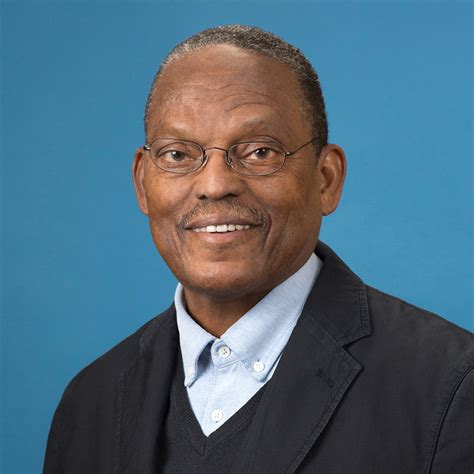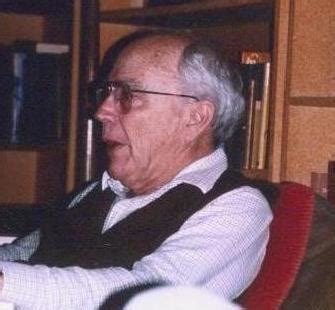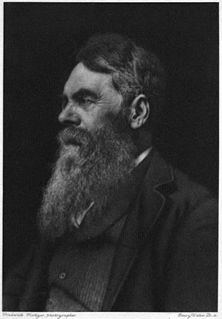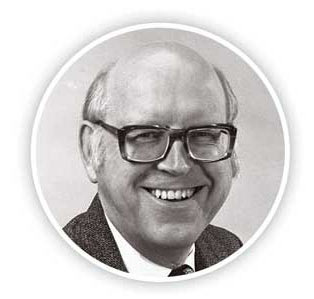Top 594 Plato And Aristotle Quotes & Sayings - Page 10
Explore popular Plato And Aristotle quotes.
Last updated on April 16, 2025.
In [Aristotle's] formal logic, thought is organized in a manner very different from that of the Platonic dialogue. In this formal logic, thought is indifferent toward its objects. Whether they are mental or physical, whether they pertain to society or to nature, they become subject to the same general laws of organization, calculation, and conclusion - but they do so as fungible signs or symbols, in abstraction from their particular "substance." This general quality (quantitative quality) is the precondition of law and order - in logic as well as in society - the price of universal control.
...why did Plato say that poets should be chased out of the republic? Precisely because every poet and every artist is an antisocial being. He's not that way because he wants to be; he can't be any other way.... and if he really is an artist it is in his nature not to want to be admitted, because if he is admitted it can only mean he is doing something which is understood, approved, and therefore old hat - worthless. Anything new, anything worth doing, can't be recognized.
When I get honest, I admit I am a bundle of paradoxes. I believe and I doubt, I hope and get discouraged, I love and I hate, I feel bad about feeling good, I feel guilty about not feeling guilty. I am trusting and suspicious. I am honest and I still play games. Aristotle said I am a rational animal; I say I am an angel with an incredible capacity for beer.
Plato in his dialogue The Phaedo says that whereas sticks and stones are both equal and unequal, (so maybe what that means is that each stick is going to be equal to some other sticks and unequal to some other sticks, so equal to the stick on the left maybe but shorter than the stick on its right) the form of equal is going to be just equal, and it won't partake of inequality at all. And it will be the cause of equality in things that are equal, for example, equal sticks and stones.
We know only what we do, what we make, what we construct; and all that we make, all that we construct, are realities. I call them images, not in Plato's sense (namely that they are only reflections of reality), but I hold that these images are the reality itself and that there is no reality beyond this reality except when in our creative process we change the images: then we have created new realities.
I want you teabaggers out there to understand one thing: while you idolize the Founding Fathers and dress up like them, and smell like them, I think it's pretty clear that the Founding Fathers would have hated your guts. And what's more, you would've hated them. They were everything you despise. They studied science, read Plato, hung out in Paris and thought the Bible was mostly bulls**t.
Kantians are saddled with absolutist views, Aristotelians are accused of vagueness, and there is almost no horror to which Consequentialists are innocent of, according to some critics. While all these families of views have been victimized in these ways, Consequentialists have gotten the worst of it. I think this may have something to do with the fact that Kant and Aristotle are acknowledged to be great philosophers, and we tend to read the greats sympathetically, while Consequentialism is a family of views not rooted in the work of a single great man to whom this kind of deference is owed.
Manlius ... took care in his invitations, actively sought to exclude from his circle crude and vulgar men like Caius Valerius. But they were all around; it was Manlius who lived in a dream world, and his bubble of civility was becoming smaller and smaller. Caius Valerius, powerful member of a powerful family, had never even heard of Plato. A hundred, even fifty years before, such an absurdity would have been inconceivable. Now it was surprising if such a man did know anything of philosophy, and even if it was explained, he would not wish to understand.
Man will become immeasurably stronger, wiser, and subtler; his body will become more harmonious, his movements more rhythmic, his voice more musical. The forms of life will become dynamically dramatic. The average human type will rise to the heights of an Aristotle, a Goethe, or a Marx. And above these heights, new peaks will rise.
God has no needs. Human love, as Plato teaches us, is the child of Poverty – of want or lack; it is caused by a real or supposed goal in its beloved which the lover needs and desires. But God's love, far from being caused by goodness in the object, causes all the goodness which the object has, loving it first into existence, and then into real, though derivative, lovability. God is Goodness. He can give good, but cannot need or get it. In that sense , His love is, as it were, bottomlessly selfless by very definition; it has everything to give, and nothing to receive.
Over two thousand years ago, Aristotle taught us that money should be durable, divisible, consistent, convenient, and value in itself. It should be durable, which is why wheat isn't money; divisible which is why works of art are not money; consistent which is why real estate isn't money; convenient, which is why lead isn't money; value in itself, which is why paper shouldn't be money. Gold answers to all these criteria.
The infinitesimal seedlings became a forest of trees that grew courteously, correcting the distances between themselves as they shaped themselves to the promptings of available light and moisture, tempering the climate and the temperaments of the Scots, as the driest land became moist and the wettest land became dry, seedlings finding a mean between extremes, and the trees constructing a moderate zone for themselves even into what I would have called tundra, until I understood the fact that Aristotle taught, while walking in a botanic garden, that the middle is fittest to discern the extremes.
The neo-conservative critics of leftist critics of mass culture ridicule the protest against Bach as background music in the kitchen, against Plato and Hegel, Shelley and Baudelaire, Marx and Freud in the drugstore. Instead, they insist on recognition of the fact that the classics have left the mausoleum and come to life again, that people are just so much more educated. True, but coming to life as classics, they come to life as other than themselves; they are deprived of their antagonistic force, of the estrangement which was the very dimension of their truth.
So to the wretched writer I should like to say that there’s one body only whose request for your caresses is not vulgar, is not unchaste, untoward, or impolite: the body of your work itself; for you must remember that your attentions will not merely celebrate a beauty but create one; that yours is love that brings it own birth with it, just as Plato has declared, and that you should therefore give up the blue things of this world in favor of the words which say them
The bourgeois thinkers of the eighteenth century thus turned Aristotle's formula on its head: satisfactions which the Greek philosopher had identified with leisure were now transposed to the sphere of work, while tasks lacking in any financial reward were drained of all significance and left to the haphazard attentions of decadent dilettantes. It now seemed as impossible that one could be happy and unproductive as it had once seemed unlikely that one could work and be human.
Let it not, therefore, be said that the Sovereign is not subject to the laws of his State; since the contrary is a true proposition of the right of nations, which flattery has sometimes attacked but good princes have always defended as the tutelary divinity of their dominions. How much more legitimate is it to say with the wise Plato, that the perfect felicity of a kingdom consists in the obedience of subjects to their prince, and of the prince to the laws, and in the laws being just and constantly directed to the public good!
The breakdown of Plato's philosophy is made apparent in the fact that he could not trust to gradual improvements in education to bring about a better society which should then improve education, and so on indefinitely. Correct education could not come into existence until an ideal state existed, and after that education would be devoted simply to its conservation. For the existence of this state he was obliged to trust to some happy accident by which philosophic wisdom should happen to coincide with possession of ruling power in the state.
Not only were the Jews expecting the birth of a Great King, a Wise Man and a Saviour, but Plato and Socrates also spoke of the Logos and of the Universal Wise Man 'yet to come'. Confucius spoke of 'the Saint'; the Sibyls, of a 'Universal King'; the Greek dramatist, of a saviour and redeemer to unloose man from the 'primal eldest curse'. All these were on the Gentile side of the expectation. What separates Christ from all men is that first He was expected; even the Gentiles had a longing for a deliverer, or redeemer. This fact alone distinguishes Him from all other religious leaders.
People are mostly sane enough, of course, in the affairs of common life: the getting of food, shelter, and so on. But the moment they attempt any depth or generality of thought, they go mad almost infallibly. The vast majority, of course, adopt the local religious madness, as naturally as they adopt the local dress. But the more powerful minds will, equally infallibly, fall into the worship of some intelligent and dangerous lunatic, such as Plato, or Augustine, or Comte, or Hegel, or Marx.
When I was young, we thought that Oscar Wilde was a great nobleman who had thrown his life away for love. Nothing could be less true. He slept with East Enders who were procured for him by Lord Alfred Douglas. He knew them only 'in Braille' - the curtains were never drawn back in the rooms in Oxford where he met those boys. It was the most sordid life you can imagine. And he was bleating about love and dragging the fair name of Mr. Plato into the trial - after a life like that?
Society is an illusion to the young citizen. It lies before him in rigid repose, with certain names, men, and institutions, rootedlike oak-trees to the centre, round which all arrange themselves the best they can. But the old statesman knows that society is fluid; there are no such roots and centres; but any particle may suddenly become the centre of the movement, and compel the system to gyrate round it, as every man of strong will, like Pisistratus, or Cromwell, does for a time, and every man of truth, like Plato, or Paul, does forever.
So Socrates was a kind of gadfly. He was a sort of philosophical urban gorilla hanging around in the middle of Athens, asking these peculiar questions of everybody - important people, young men, slaves - questions that had to do with ultimately what's the life that's worth living. And Plato was one of the young men who hung around him, a very aristocratic young man, came from a very old, important family.
Here is the mistake of the cut-and-dried man of culture. He goes about with the secret of having learned to appreciate the "grandstyle." He has lived in Homer till he can recall the roll of that many-sounding sea. He has pored over the lofty and pictorial thought of Plato till he begins to pique himself upon its grandeur. His fancy has been fed on the quaint old-world genius of Herodotus, his judgment on the melancholy wisdom of Tacitus and the complacent cynicism of Gibbon--and of all this he is conscious and proud.
It has been a long road from Plato's Meno to the present, but it is perhaps encouraging that most of the progress along that road has been made since the turn of the twentieth century, and a large fraction of it since the midpoint of the century. Thought was still wholly intangible and ineffable until modern formal logic interpreted it as the manipulation of formal tokens. And it seemed still to inhabit mainly the heaven of Platonic ideals, or the equally obscure spaces of the human mind, until computers taught us how symbols could be processed by machines.
Man is a rational animal—so at least I have been told. … Aristotle, so far as I know, was the first man to proclaim explicitly that man is a rational animal. His reason for this view was … that some people can do sums. … It is in virtue of the intellect that man is a rational animal. The intellect is shown in various ways, but most emphatically by mastery of arithmetic. The Greek system of numerals was very bad, so that the multiplication table was quite difficult, and complicated calculations could only be made by very clever people.
We are dealing with the best-educated generation in history. But they've got a brain dressed up with nowhere to go. Science is all metaphor. In the information age, you don't teach philosophy as they did after feudalism. You perform it. If Aristotle were alive today he'd have a talk show. If you don't like what you are doing, you can always pick up your needle and move to another groove. If you take the game of life seriously, if you take your nervous system seriously, if you take your sense organs seriously, if you take the energy process seriously, you must turn on, tune in, and drop out.
How will you go about finding that thing the nature of which is totally unknown to you?" (Plato) The things we want are transformative, and we don’t know or only think we know what is on the other side of that transformation. Love, wisdom, grace, inspiration- how do you go about finding these things that are in some ways about extending the boundaries of the self into unknown territory, about becoming someone else?
Plato said that poets should be excluded from the ideal republic because they are such liars. I am a poet, and I affirm that this is true. About no subject are poets tempted to lie so much as about their own lives; I know one of them who has floated at least five versions of his autobiography, none of them true. I of course - being also a novelist - am a much more truthful person than that. But since poets lie, how can you believe me?
17th century philosophers were not in a position to understand the mind as well as we can today, since the advent of experimental methods in psychology. It shows no disrespect for the brilliance of Descartes or Kant to acknowledge that the psychology which they worked with was primitive by comparison with what is available today in the cognitive sciences, any more than it shows disrespect for the brilliance of Aristotle to acknowledge that the physics he worked with does not compare with that of Newton or Einstein.
If the modern spirit, whatever that may be, is disinclined towards taking the Lord's word at its face value (as I hear is the case), we may observe that Isaiah's testimony to the character of the masses has strong collateral support from respectable Gentile authority. Plato lived into the administration of Eubulus, when Athens was at the peak of its jazz-and-paper era, and he speaks of the Athenian masses with all Isaiah's fervency, even comparing them to a herd of ravenous wild beasts.
A successful unification of quantum theory and relativity would necessarily be a theory of the universe as a whole. It would tell us, as Aristotle and Newton did before, what space and time are, what the cosmos is, what things are made of, and what kind of laws those things obey. Such a theory will bring about a radical shift - a revolution - in our understanding of what nature is. It must also have wide repercussions, and will likely bring about, or contribute to, a shift in our understanding of ourselves and our relationship to the rest of the universe.
Philosophy, for Plato, is a kind of vision, the 'vision of truth'...Everyone who has done any kind of creative work has experienced, in a greater or less degree, the state of mind in which, after long labour, truth or beauty appears, or seems to appear, in a sudden glory - it may only be about some small matter, or it may be about the universe. I think that most of the best creative work, in art, in science, in literature, and in philosophy, has been a result of just such a moment.
If Aristotle, Livy, and Harrington knew what a republic was, the British constitution is much more like a republic than an empire. They define a republic to be a government of laws, and not of men. If this definition is just, the British constitution is nothing more or less than a republic, in which the king is first magistrate. This office being hereditary, and being possessed of such ample and splendid prerogatives, is no objection to the government's being a republic, as long as it is bound by fixed laws, which the people have a voice in making, and a right to defend.
If the spirit of their intercourse were still the same after their coming together as it had been when they were living apart,' Aristotle writes, their association can't really be considered a polis, or political community.
'A polis is not an association for residence on a common site, or for the sake of preventing mutual injustice and easing exchange.' While these conditions are necessary to a polis, they are not sufficient. 'The end and purpose of a polis is the good life, and the institutions of social life are means to that end.
But progress in knowledge has made us aware of the superficiality of Plato's lumping of individuals and their original powers into a few sharply marked-off classes; it has taught us that original capacities are indefinitely numerous and variable. It is but the other side of this fact to say that in the degree in which society has become democratic, social organization means utilization of the specific and variable qualities of individuals, not stratification by classes.
If Christianity cannot present evidence that the soul is immortal, then they have nothing to offer the masses, eternity in heaven with God or hold over their heads suffering forever in hell. They need the immortality of the soul. I did my research, it's not in the Bible, so what do they do? They relied on Judaism, which has always believed in the immortality of the soul. I start checking on that and I look in the Judaica Encyclopedia and what do I find? Their remark that Judaism probably got the immortality of the soul from the Greeks, so I go back further, where it all started with Plato.
While the poet entertains he continues to search for eternal truths, for the essence of being. In his own fashion he tries to solve the riddle of time and change, to find an answer to suffering, to reveal love in the very abyss of cruelty and injustice. Strange as these words may sound I often play with the idea that when all the social theories collapse and wars and revolutions leave humanity in utter gloom, the poet--whom Plato banned from his Republic--may rise up to save us all.
[Thomas Henry] Huxley, I believe, was the greatest Englishman of the Nineteenth Century—perhaps the greatest Englishman of all time. When one thinks of him, one thinks inevitably of such men as Goethe and Aristotle. For in him there was that rich, incomparable blend of intelligence and character, of colossal knowledge and high adventurousness, of instinctive honesty and indomitable courage which appears in mankind only once in a blue moon. There have been far greater scientists, even in England, but there has never been a scientist who was a greater man.
The Sophists had this idea: Forget this idea of what's true or not—what you want to do is rhetoric; you want to be able to persuade the audience and have the audience think you're smart and cool. And Socrates and Plato, basically their whole idea is, "Bullshit. There is such a thing as truth, and it's not all just how to say what you say so that you get a good job or get laid, or whatever it is people think they want.
The student is half afraid to meet one of the great philosophers face to face. He feels himself inadequate and thinks he will not understand him. But if he only knew, the great man, just because of his greatness, is much more intelligible than his modern commentator. The simplest student will be able to understand, if not all, yet a very great deal of what Plato said; but hardly anyone can understand some modern books on Platonism.
Infuriatingly stupid analysts - especially people who called themselves Arabists, yet who seemed to know next to nothing about the reality of the Islamic world - wrote reams of commentary [after 9/11]. Their articles were all about Islam saving Aristotle and the zero, which medieval Muslim scholars had done more than eight hundred years ago; about Islam being a religion of peace and tolerance, not the slightest bit violent. These were fairy tales, nothing to do with the real world I knew.
Homosexuality is assuredly no advantage, but it is nothing to be ashamed of, no vice, no degradation; it cannot be classified as an illness; we consider it to be a variation of the sexual function, produced by a certain arrest of sexual development. Many highly respectable individuals of ancient and modern times have been homosexuals, several of the greatest men among them (Plato, Michelangelo, Leonardo da Vinci, etc.). It is a great injustice to persecute homosexuality as a crime--and a cruelty, too. If you do not believe me, read the books of Havelock Ellis.
The medieval theologian who gazed at the night sky through the eyes of Aristotle and saw angels moving the spheres in harmony has become the modern cosmologist who gazes at the same sky through the eyes of Einstein and sees the hand of God not in angels but in the constants of nature. When confronted with the order and beauty of the universe and the strange coincidences of nature, it¹s very tempting to take the leap of faith from science into religion. I am sure many physicists want to. I only wish they would admit it.
The study of the properties of numbers, Plato tells us, habituates the mind to the contemplation of pure truth, and raises us above the material universe. He would have his disciples apply themselves to this study, not that they may be able to buy or sell, not that they may qualify themselves to be shopkeepers or travelling merchants, but that they may learn to withdraw their minds from the ever-shifting spectacle of this visible and tangible world, and to fix them on the immutable essences of things.
Is it not evident, in these last hundred years (when the Study of Philosophy has been the business of all the Virtuosi in Christendome) that almost a new Nature has been revealed to us? that more errours of the School have been detected, more useful Experiments in Philosophy have been made, more Noble Secrets in Opticks, Medicine, Anatomy, Astronomy, discover'd, than in all those credulous and doting Ages from Aristotle to us? So true it is that nothing spreads more fast than Science, when rightly and generally cultivated.
As everyone knows, the ancients before Aristotle did not consider the dream a product of the dreaming mind, but a divine inspiration, and in ancient times the two antagonistic streams, which one finds throughout in the estimates of dream life, were already noticeable. They distinguished between true and valuable dreams, sent to the dreamer to warn him or to foretell the future, and vain, fraudulent, and empty dreams, the object of which was to misguide or lead him to destruction.
I am Plato's Republic. Mr. Simmons is Marcus. I want you to meet Jonathan Swift, the author of that evil political book, Gulliver's Travels! And this other fellow is Charles Darwin, and-this one is Schopenhauer, and this one is Einstein, and this one here at my elbow is Mr. Albert Schweitzer, a very kind philosopher indeed. Here we all are, Montag. Aristophanes and Mahatma Gandhi and Gautama Buddha and Confucius and Thomas Love Peacock and Thomas Jefferson and Mr. Lincoln, if you please. We are also Matthew, Mark, Luke, and John.
It must be so,-Plato, thou reasonest well! Else whence this pleasing hope, this fond desire, This longing after immortality? Or whence this secret dread and inward horror Of falling into naught? Why shrinks the soul Back on herself, and startles at destruction? 'T is the divinity that stirs within us; 'T is Heaven itself that points out an hereafter, And intimates eternity to man. Eternity! thou pleasing, dreadful thought!
... an essential feature of a decent society, and an almost defining feature of a democratic society, is relative equality of outcome - not opportunity, but outcome. Without that you can't seriously talk about a democratic state... These concepts of the common good have a long life. They lie right at the core of classical liberalism, of Enlightenment thinking... Like Aristotle, [Adam] Smith understood that the common good will require substantial intervention to assure lasting prosperity of the poor by distribution of public revenues.
A writer must always try to have a philosophy and he should also have a psychology and a philology and many other things. Without a philosophy and a psychology and all these various other things he is not really worthy of being called a writer. I agree with Kant and Schopenhauer and Plato and Spinoza and that is quite enough to be called a philosophy. But then of course a philosophy is not the same thing as a style.
Aristotle, in spite of his reputation, is full of absurdities. He says that children should be conceived in the Winter, when the wind is in the North, and that if people marry too young the children will be female. He tells us that the blood of females is blacker than that of males; that the pig is the only animal liable to measles; that an elephant suffering from insomnia should have its shoulders rubbed with salt, olive-oil, and warm water; that women have fewer teeth than men, and so on. Nevertheless, he is considered by the great majority of philosophers a paragon of wisdom.
We are finally living in Plato's cave, if we consider how those who were imprisoned within the cave - who could do nothing but watch those shadows passing on the back wall - were convinced that those shadows were their one and only reality. I see a profound similarity to all this in the epoch we're now living in. We no longer live simply through images: we live through images that don't even exist, which are the result not of physical projection but of pure virtuality.














































